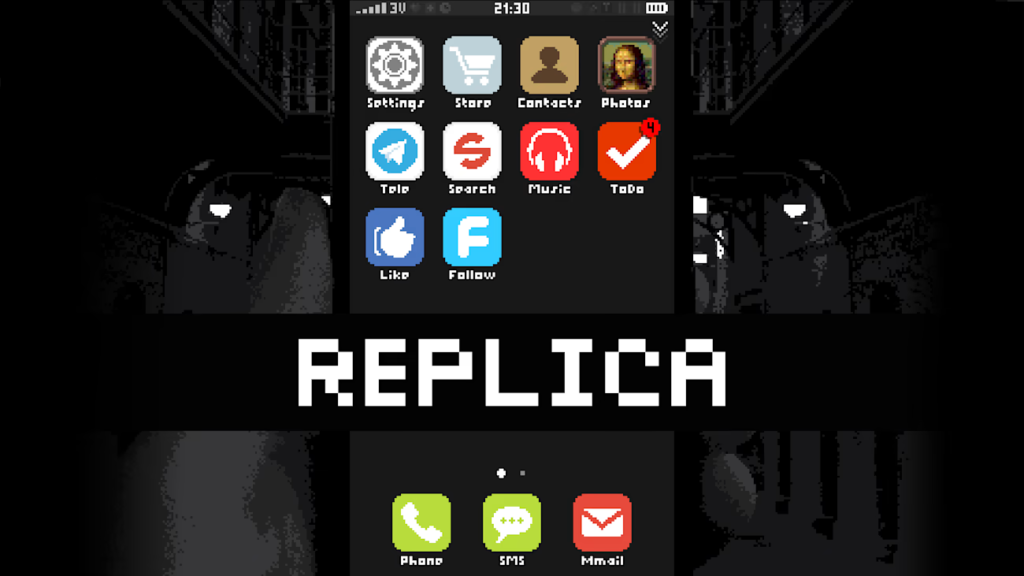
Replica is a unique little game from publisher Playism and Somi, an independent South Korean game designer. It is the first game in his “Guilt Trilogy”. Replica might be a little unexpected but be assured, it’s purposely simplistic design belies a complex game that’s surprisingly engaging! It’s great to be getting these small releases on major consoles because for years, they flew under the radar and only the hardcore gamers found them hiding in murky corners of the net. Now with digital delivery, we can enjoy a plethora of unique and interesting games and Replica definitely fits into that category.
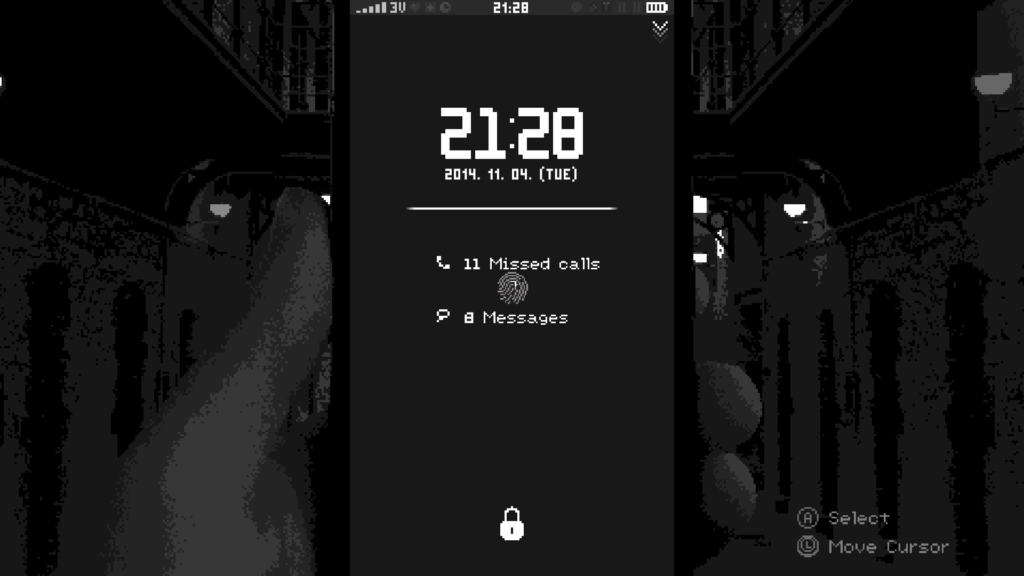
In Replica, the entire game is played through an 8 bit smart phone that is shown on the screen. Even the intro runs through the screen of the phone, a static image almost burned into our brains. Chances are good that you are even reading this review on a phone and the imagery is purposeful. In a shockingly few number of years we have, as a society, moved our entire lives into smartphones and that shared experience is used as a narrative vehicle in Replica.
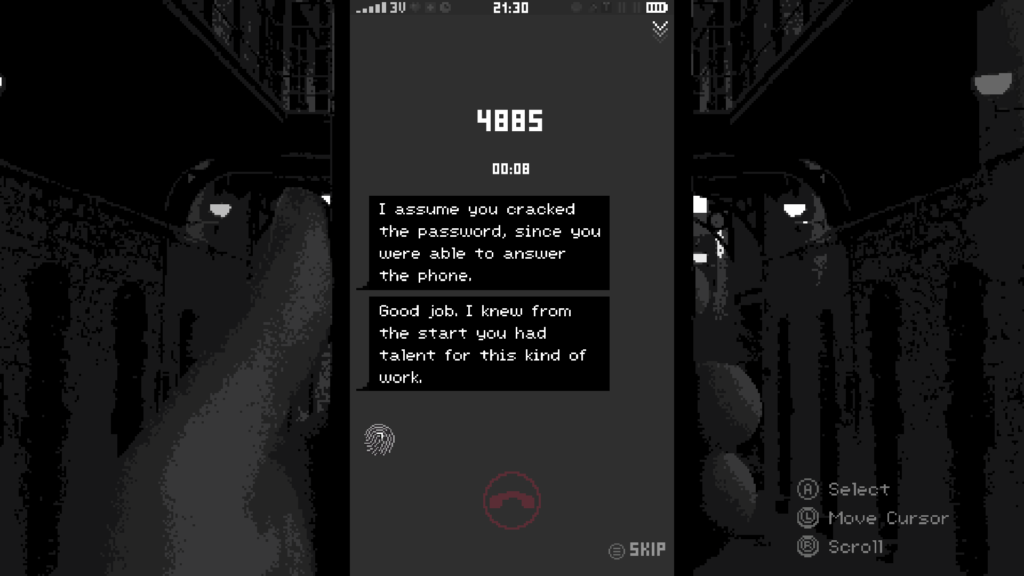
You play Tom, a person we never actually meet (phone screen, remember? Tom is apparently in jail, suspected of being a terrorist. You’re not sure what has happened but the phone rings and a voice tells you they’re the government and the phone in your hands belongs to the suspected terrorist in the cell next to yours. ‘We’re the government, we’re here to help’ and whatnot. Your job is to choose between being convicted as a terrorist or pillaging the phone of the suspected terrorist next to you in order to locate proof that he’s been plotting against the government. Crack his passwords. Search his metadata. And whatever you do, don’t answer his phone!

Replica is fairly unique in that there are no interactions with other characters. Phone conversations are pre-scripted, characters are referred to but never met, and the whole game plays out in the palm of your hand so to speak. Clicking on a suspicious item yields a green check when you find a requested clue from your faceless government overlords. A red check means to keep going. And you can follow the trail of breadcrumbs all the way to the end if that’s your thing. But there’s more to Replica than a simple linear pathway. That’s not the real point of the game.
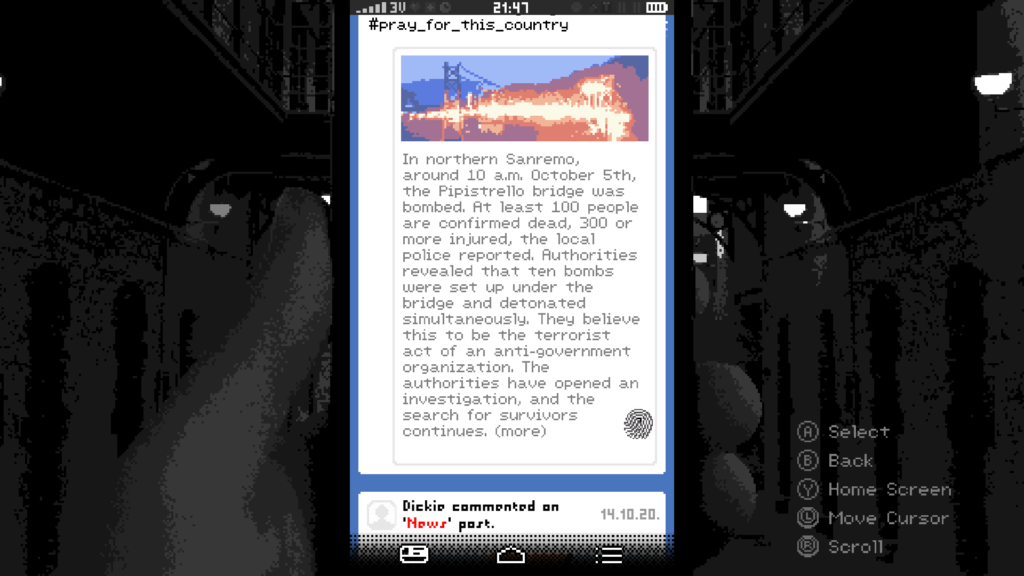
In fact, there’s a lot going on under the hood of this clever little title. While it might seem easy to walk through the gameplay ignoring phone calls and following directions, there are a lot of details that simply don’t fit into the narrative. Be assured there is a good reason for every extraneous detail. Vague references to communication methods such as Morse code, odd search engine requests, even the dates on seemingly innocuous photographs work their way into the narrative of Replica.
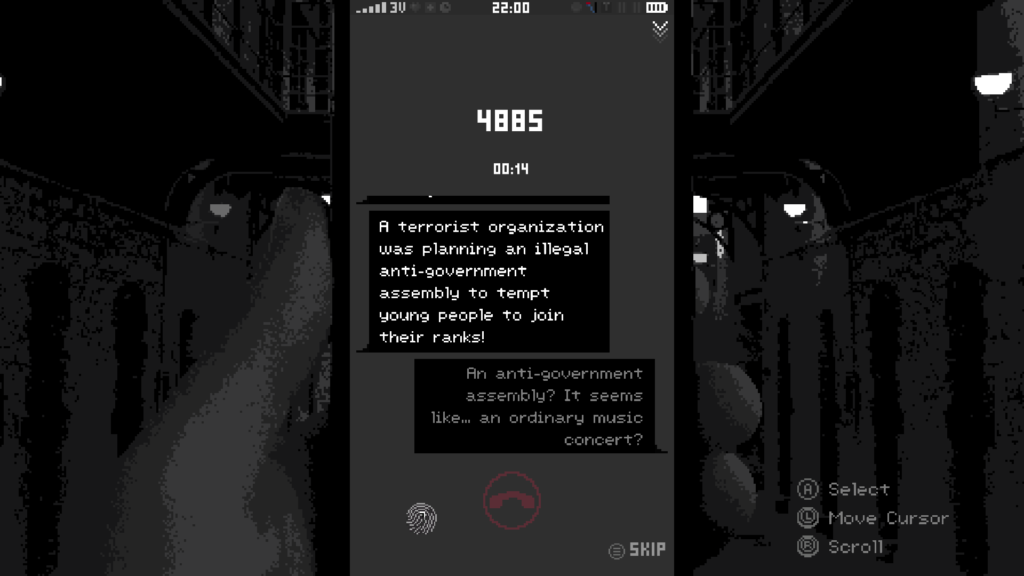
And all those diversions are part of an overall structure that allows you to be master of your own fate. There is a significant degree of agency in Replica. You can choose to obey the faceless government agents. You can also choose to ignore them and answer the phone. See what happens. You might get killed by a fascist regime, but hey, that’s up to you. A playthrough of Replica can take as little as an hour or even less depending on your skill with some of the more complex puzzles and codes hidden in the game but that doesn’t get you the whole story. The real game only gets going when you have completed the game for the first time and things get progressively weirder from there.
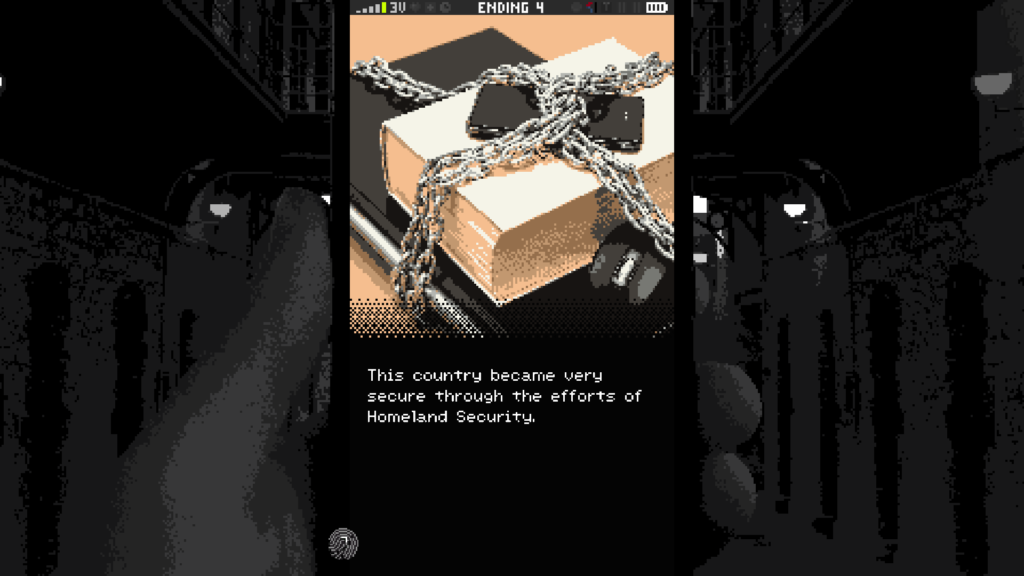
Replica features a whopping 12 endings and many of them are increasingly disparate and surprising. Sure, you can capitulate to the regime, but you’ll end up at a different numbered ending, instantly implying that there are other things you could have done to change the outcome. That’s where things get interesting. Each ending in Replica adds more and more to the backstory of the game, showing you different aspects of the dystopian world around you. And make no mistake, there’s a political bent to the game, warning us of the dangers of state surveillance and the ways that things can go horribly wrong. The comparisons to well-known dystopian fiction are quite obvious so there’s no need to go into those parallels, but even though humans receive warning after warning, the world of Replica still seems like exactly where we’re heading.

After a few gameplay loops you’ll start picking up clues and those clues and the notes you’ll have to take are going to be the keys to unlock even more of Replica. They hide information that must be collated in order to progress and unlock the later, more secret endings of the game and it’s a fascinating journey. Somi has done an incredible job with such a minimalist game package and if you’re the puzzle-solving type and don’t need hints or handholding, reaching every ending in Replica is intensely satisfying.

As you might have guessed, graphics and sound aren’t the main focus of Replica but the simple visuals are a welcome respite that make gameplay a more cerebral experience. If you’re looking for fancy 3D and a toe-tapping soundtrack, look elsewhere. Everything you need is here though, so focus on the task at hand and decide where your allegiances lie.

Replica is a fantastic minimalist experience that should not be missed and it’s an absolute delight that it has come to consoles. For $5, even if it doesn’t quite suit you, the game is worth your time both as a unique and remarkably immersive experience and as a harbinger of the fate that awaits us as Western society heads inexorably down the pathway of surveillance and technology. Somi has created a fantastic game here and you should definitely pay attention…or suffer the consequences.

This review was based on a digital copy of Replica provided by the publisher. It was played on an Xbox Series X using a 1080p Sony TV. Replica is also available on Nintendo Switch, mobile platforms, and PC on Steam.

